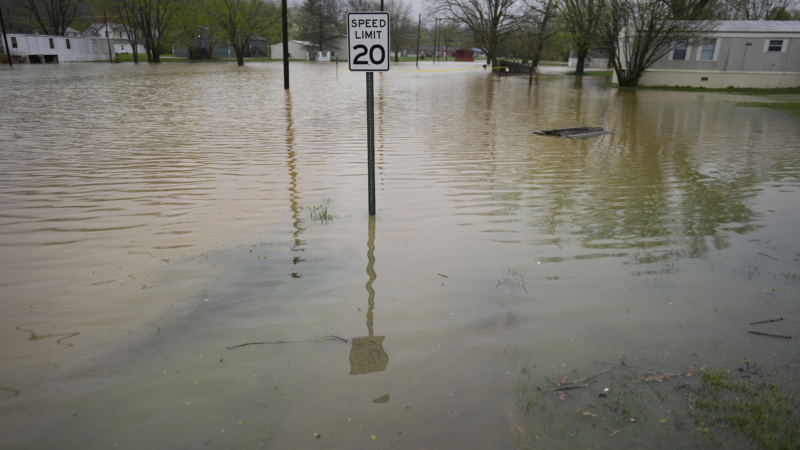Several people are feared dead in a stampede at massive festival in India
PRAYAGRAJ, India — Several people were feared dead and many more injured in a stampede early Wednesday as tens of thousands of Hindus rushed to take ritual baths in sacred rivers at the massive Maha Kumbh festival in northern India.
Several pilgrims were injured, some seriously, in the stampede between 1 a.m. and 2 a.m. as they tried to jump barricades erected for the movement of religious saints, Uttar Pradesh state’s top elected official, Yogi Adityanath, said in a televised statement.
He made no mention of any deaths even eight hours after the crush of pilgrims at the site. Some local news websites said 10 people had died.
Distressed families lined up outside a makeshift hospital inquiring about their missing relatives, rescuers were helping the injured and police tried to manage the crowds. People’s belongings like clothes, blankets and backpacks were strewn around the scene of the stampede. It was not immediately clear what triggered the panic.

“The situation is now under control, but there is a massive crowd of pilgrims,” Adityanath said, adding that 90 million to 100 million pilgrims had congregated there.
“About 30 million people had taken the holy bath by 8 a.m. Wednesday,” he said.
Wednesday was a sacred day during the six-week festival, and authorities were expecting a record 100 million devotees to engage in a ritual bath at the confluence of the Ganges, the Yamuna and the mythical Saraswati rivers. Hindus believe that a dip at the confluence will cleanse them of their past sins and end their process of reincarnation. The main draw are thousands of ash-smeared Hindu ascetics who make massive processions toward the confluence to bathe.
Millions continued to throng the site even as police officials urged them over megaphones to avoid the confluence. Adityanath urged people to instead take baths at other riverbanks.
The Maha Kumbh festival, held every 12 years, started on Jan. 13 and is the world’s largest religious gathering. Authorities expect more than 400 million people to throng the pilgrimage site in total.
Nearly 150 million people have already attended, including the likes of Defense Minister Rajnath Singh and Home Minister Amit Shah and celebrities like Coldplay’s Chris Martin.

A sprawling tent city was built on the riverbanks to accommodate visitors. It has roads, electricity and water, 3,000 kitchens and 11 hospitals.
About 50,000 security personnel are stationed in the city to maintain law and order and manage crowds, and more than 2,500 cameras monitor crowd movement and density so officials can try to prevent such crushes.
Deadly stampedes are relatively common around Indian religious festivals, where large crowds gather in small areas. In 2013, at least 40 pilgrims who were taking part in the same festival were killed in a stampede at a train station in Prayagraj.
Asian markets plunge with Japan’s Nikkei diving nearly 8% after big Wall St. meltdown
Asian shares nosedived on Monday after the meltdown Friday on Wall Street over U.S. President Donald Trump's tariff hikes and the backlash from Beijing.
UConn takes 12th NCAA women’s basketball title with dominant win over South Carolina
UConn is back on top of women's basketball, winning its 12th NCAA national championship by routing defending champion South Carolina 82-59 on Sunday.
Alex Ovechkin scores goal #895 to break Wayne Gretzky’s all-time NHL scoring record
The Washington Capitals star made history with a power play goal from the left faceoff circle — as Gretzky, who last set the record more than 25 years ago, looked on.
Severe storms and floods batter South and Midwest, as death toll rises to at least 18
Severe storms continued to pound parts of the South and Midwest, as a punishing and slow-moving storm system unleashed life-threatening flash floods and powerful tornadoes from Mississippi to Kentucky.
Israeli strikes on Gaza kill at least 32, mostly women and children
Israeli strikes on Gaza killed at least 32 people, including over a dozen women and children, local health officials said Sunday, as Israeli Prime Minister Netanyahu headed to meet President Trump.
Second child dies from measles-related causes in West Texas, where cases near 500
A second school-aged child in West Texas has died from a measles-related illness, a hospital spokesman confirmed Sunday, as the outbreak continues to swell.








